
Baen Books is an American publishing house for science fiction and fantasy. In science fiction, it emphasizes space opera, hard science fiction, and military science fiction. The company was established in 1983 by science fiction publisher and editor Jim Baen. After his death in 2006, he was succeeded as publisher by long-time executive editor Toni Weisskopf.
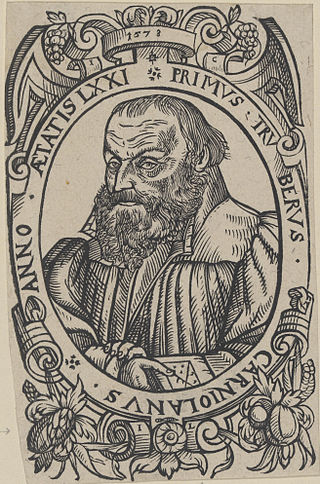
Primož Trubar or Primus Truber was a Slovene Protestant Reformer of the Lutheran tradition, mostly known as the author of the first Slovene language printed book, the founder and the first superintendent of the Protestant Church of the Duchy of Carniola, and for consolidating the Slovenian language. Trubar introduced The Reformation in Slovenia, leading the Austrian Habsburgs to wage the Counter-Reformation, which a small Protestant community survived. Trubar is a key figure of Slovenian history and in many aspects a major historical personality.
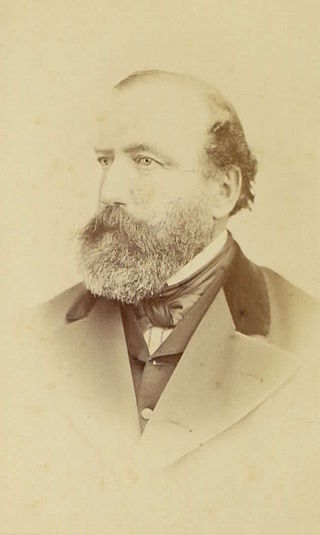
Peter Kosler or Kozler was an Austrian-Slovene lawyer, geographer, cartographer, activist, and businessman. He was of ethnic German origin, but also identified with Slovene culture and advocated the peaceful coexistence of the Slovene and German cultures in Carniola.

Omni was a science and science fiction magazine published for domestic American and UK markets. It contained articles on science, parapsychology, and short works of science fiction and fantasy. It was published as a print version between October 1978 and 1995. The first Omni e-magazine was published on CompuServe in 1986 and the magazine switched to a purely online presence in 1996. It ceased publication abruptly in late 1997, following the death of co-founder Kathy Keeton; activity on the magazine's website ended the following April.
Slovene literature is the literature written in Slovene. It spans across all literary genres with historically the Slovene historical fiction as the most widespread Slovene fiction genre. The Romantic 19th-century epic poetry written by the leading name of the Slovene literary canon, France Prešeren, inspired virtually all subsequent Slovene literature.
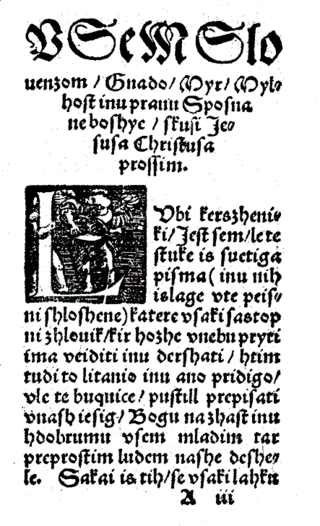
Catechismus in der windischenn Sprach or simply Catechismus, is a book written by the Slovene Protestant preacher Primož Trubar in 1550. Along with Trubar's 1550 book, Abecedarium (Abecedary), Catechismus was the first book published in Slovene. Catechismus served as part of a foundation of the establishment of a national identity for Slovenes.

Tomaž Šalamun was a Slovenian poet who was a leading figure of postwar neo-avant-garde poetry in Central Europe and an internationally acclaimed absurdist. His books of Slovene poetry have been translated into twenty-one languages, with nine of his thirty-nine books of poetry published in English. His work has been called a poetic bridge between old European roots and America. Šalamun was a member of the Slovenian Academy of Sciences and Arts. He lived in Ljubljana, Slovenia, and was married to the painter Metka Krašovec.
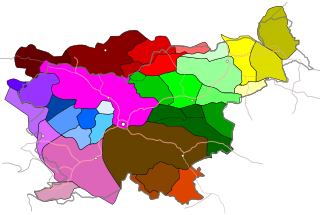
Prekmurje Slovene, also known as the Prekmurje dialect, East Slovene, or Wendish, is a Slovene dialect belonging to a Pannonian dialect group of Slovene. It is used in private communication, liturgy, and publications by authors from Prekmurje. It is spoken in the Prekmurje region of Slovenia and by the Hungarian Slovenes in Vas County in western Hungary. It is closely related to other Slovene dialects in neighboring Slovene Styria, as well as to Kajkavian with which it retains a considerable degree of mutual intelligibility and forms a dialect continuum with other South Slavic languages.

Janez Vesel, known by his pen name Jovan Koseski was a Slovene lawyer and poet.
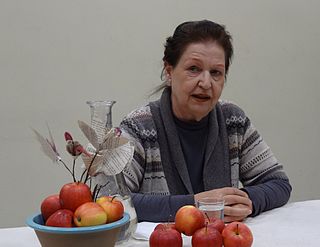
Alenka Puhar is a Slovenian journalist, author, translator, and historian. In 1982, she wrote a groundbreaking psychohistory-inspired book "The Primal Text of Life" about the 19th century social history of early childhood in Slovene Lands, then part of the Austro-Hungarian Empire. The book was in 2010 the subject of a television documentary that was in 2010 televised on the national RTV Slovenija. Her grandfather was the photographer and inventor Janez Puhar, who invented a process for photography on glass.
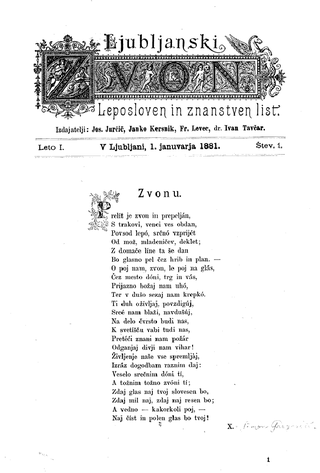
Ljubljanski zvon was a journal published in Ljubljana in Slovene between 1881 and 1941. It was considered one of the most prestigious literary and cultural magazines in Slovenia.
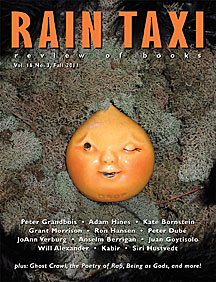
Rain Taxi is a Minneapolis-based book review and literary organization. In addition to publishing its quarterly print edition, Rain Taxi maintains an online edition with distinct content, sponsors the Twin Cities Book Festival, hosts readings, and publishes chapbooks through its Brainstorm Series. Rain Taxi's mission is “to advance independent literary culture through publications and programs that foster awareness and appreciation of innovative writing.” As of 2008, the magazine distributes 18,000 copies through 250 bookstores as well as to subscribers. The magazine is free on the newsstand. It is also available through paid subscription. Structurally, Rain Taxi is a 501(c)(3) non-profit. It sells advertising at below market rates, much of it to literary presses.
Contributions to the Slovene National Program, also known as Nova revija 57 or 57th edition of Nova revija was a special issue of the Slovene opposition intellectual journal Nova revija, published in January 1987. It contained 16 articles by non-Communist and anti-Communist dissidents in the Socialist Republic of Slovenia, discussing the possibilities and conditions for the democratization of Slovenia and the achievement of full sovereignty. It was issued as a reaction to the Memorandum of the Serbian Academy of Sciences and Arts and to the rising centralist aspirations within the Communist Party of Yugoslavia.
Dnevnik is a daily newspaper published in Ljubljana, Slovenia.
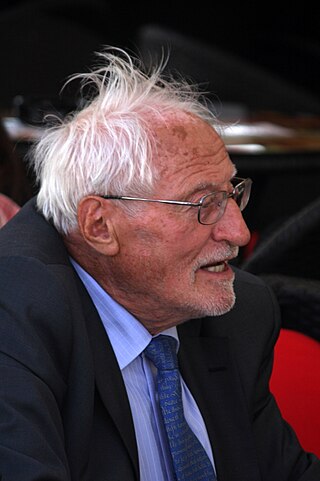
Tone Pavček was one of the most influential Slovene poets, translators, and essayists from the first post-war generation. He published numerous collections of poetry, well received by readers and critics alike. He also translated a number of Russian works into Slovene.
Nova revija is a Slovenian publishing house and cultural institute that developed from the literary journal with the same name.
Nova revija is a Slovene language literary magazine published in Slovenia.

Necropolis is an autobiographical novel by Boris Pahor about his Holocaust experience. It has been compared to works by Primo Levi, Imre Kertész, and Jorge Semprún.
Bristol in Stereo is a print magazine offering interviews, reviews, and live music listings for the city of Bristol.

Minka Krofta (1888–1954) was a Slovenian feminist, publisher, and literary patron. She is noted for being the president of ZaložbaBelo-modra knjižnica, the first women's publishing house in Slovenia. Krofta advanced the welfare of children, young people, and women. She also promoted literacy and physical education.













